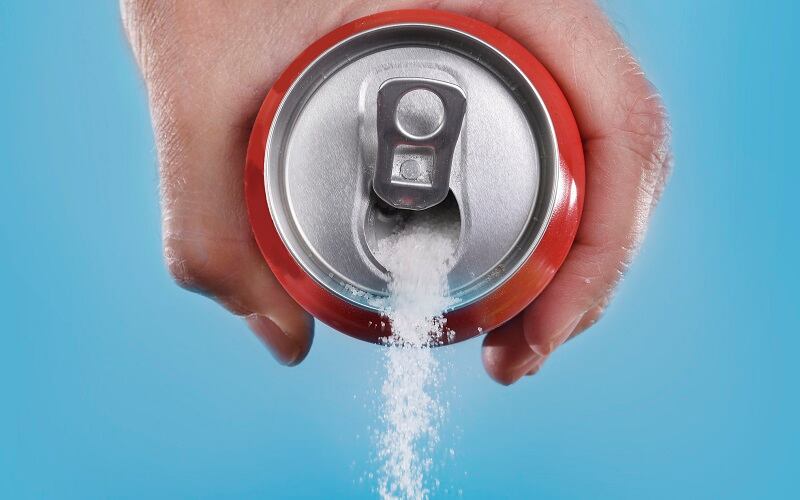US and Chinese researchers conducted an umbrella review of 73 meta-analyses from 8,601 articles covering 83 health outcomes in children and adults. In the review, researchers found “significant harmful associations” with excessive sugar consumption and 45 harmful outcomes, including asthma, diabetes, obesity, heart disease, depression, tooth decay, some cancers, and death, BMJ shared.
The research suggested that sugar-sweetened beverage consumption was associated with increased body weight, while any versus no added sugar consumption was linked to increased liver and muscle fat accumulation, according to moderate quality evidence.
Additionally, the research found that each serving per week increment of sugary beverage consumption was linked to a 4% higher risk of gout. The risk of coronary heart disease and death went up 17% and 4%, respectively, for each additional 250 mL per day increment of sugar-sweetened beverage.
The researchers acknowledged existing evidence is primarily low quality and observationally and implores further research to determine if there's a link between dietary sugar consumption and cancer.
Experts recommend reducing added sugar to about six teaspoons a day and limiting sugar-sweetened drinks to less than one serving a week. This aligns with World Health Organization guidelines that adults and children reduce their daily intake of free sugar to less than 10% of their total energy intake.
But is this new, comprehensive science?
While this recent analysis is the latest in a string of research into sugar intake, “there is no new evidence here,” Courtney Gaine, president and CEO of the Sugar Association told FoodNavigator-USA.
“This is a review of existing evidence, and even a well-executed systematic review is only as good as the studies that are inputted. Essentially, garbage in equals garbage out, and it is known that added sugars literature suffers from significant variability when it comes to definitions, intake measurements and control of energy and other diet and lifestyle variables.”
On top of these variables, Gaine noted that the review is “primarily focused on sugar-sweetened beverages," and not all sources of added sugars. “It is clear the outcomes of studies do depend on source, which is why there is now recognition that food and beverage sources of added sugars should be viewed differently in scientific analyses,” she added.
“While popular amongst some to proclaim that reducing added sugars (to such levels as never before seen in over the 100 years of USDA’s record-keeping) will improve health, the real-world data suggest otherwise, as we’ve seen sugar consumption drop 30% since 2000 while obesity rates in adults have tripled and in children, quadrupled.”
Is the answer to low-/no-sugar natural and artificial sweeteners?
While sugar consumption might be showing some signs of declining, consumers are demanding low- and no-sugar products to improve their health, and brands are responding with new and reformulated products.
"Consumers want and need options when it comes to sugar reduction. Low- and no-calorie sweeteners are a critical tool that, along with exercise and a healthy diet, can help consumers achieve their dietary, weight management goals, and to reduce the risk of non-communicable diseases, such as cardiovascular disease," Robert Rankin, president of the Calorie Control Council told FoodNavigator-USA.
One of the common ways to reduce caloric sugars and retain the taste of a product is to use natural and artificial sweeteners. Erythritol is one artificial sweetener that has gained popularity for keto-friendly products, but was the focus of a separate BMJ survey that found a potential link between the sweetener and elevated risk of heart attack or stroke.
While the Environmental Working Group described the results as "quite concerning,” Rankin noted that this survey is one of many, and that the use of reduced-calorie sweeteners have been shown to be safe and can improve human health.
"The results of the study were contrary to decades of scientific research showing reduced-calorie sweeteners, like erythritol are safe, as evidenced by global regulatory permissions for their use in foods and beverages, and should not be extrapolated to the general population, as the participants in the intervention were already at increased risk for cardiovascular events."


